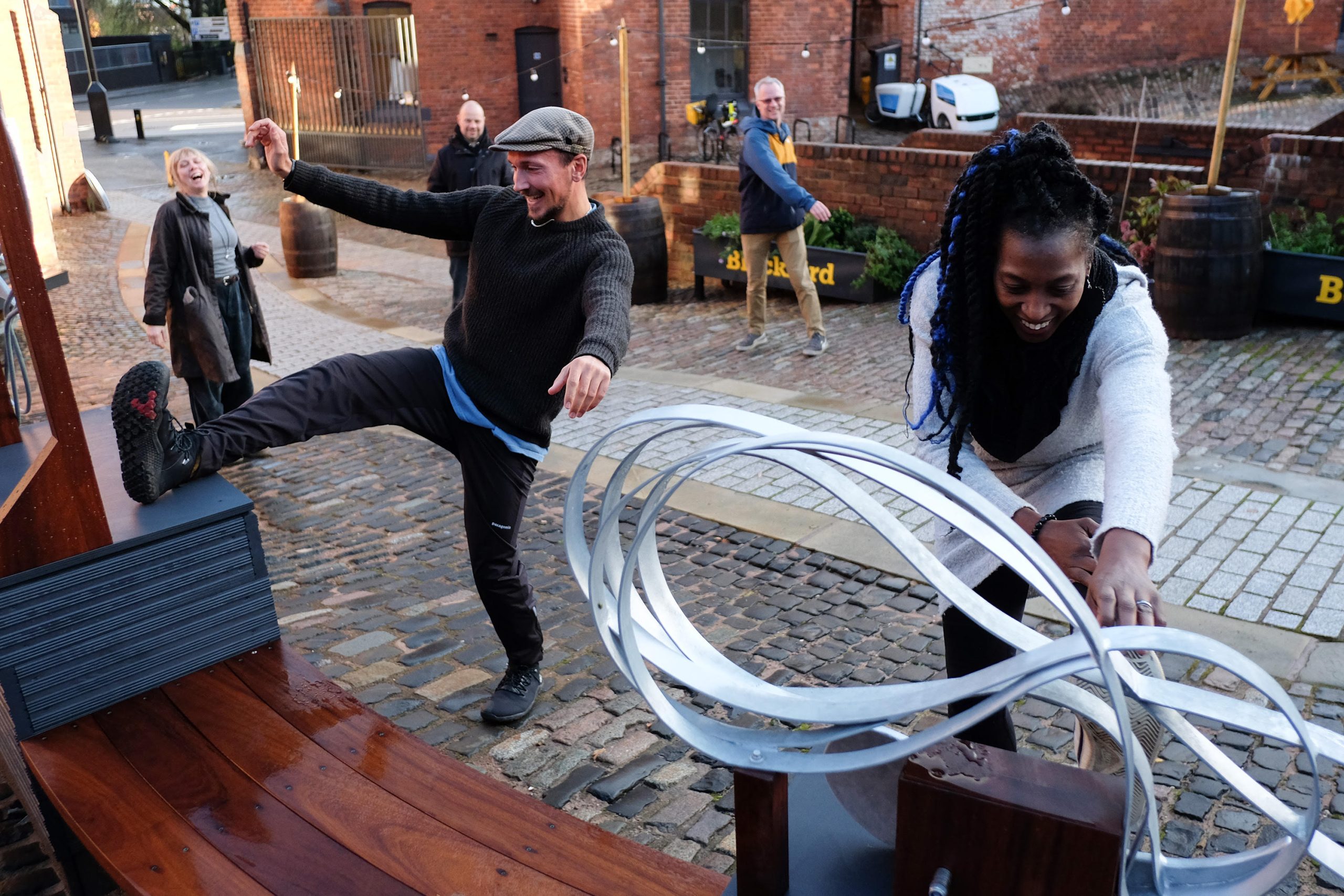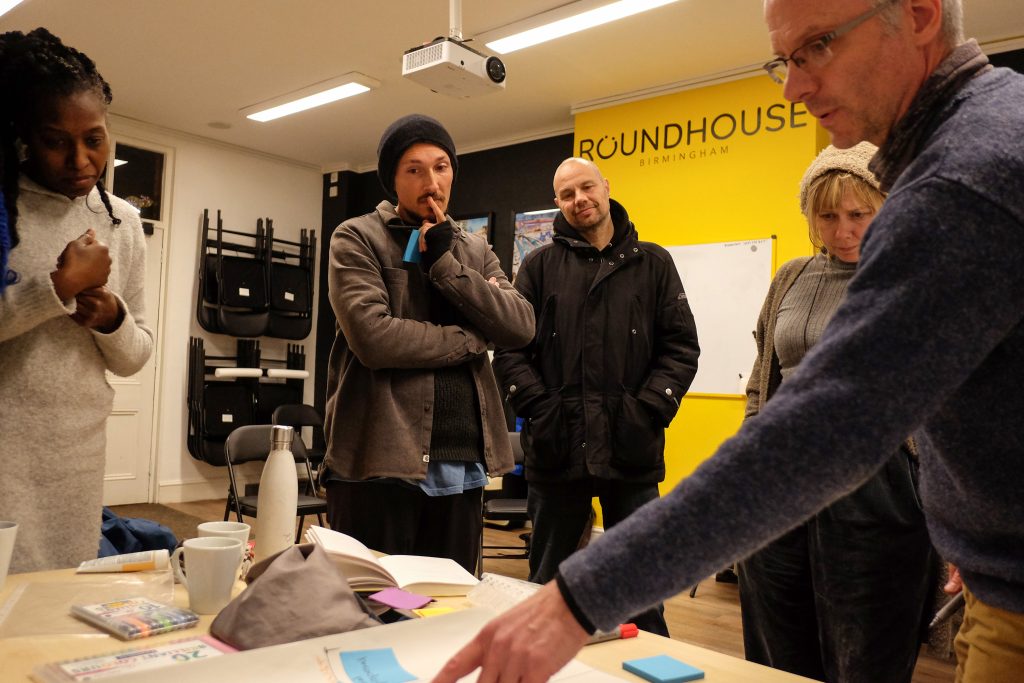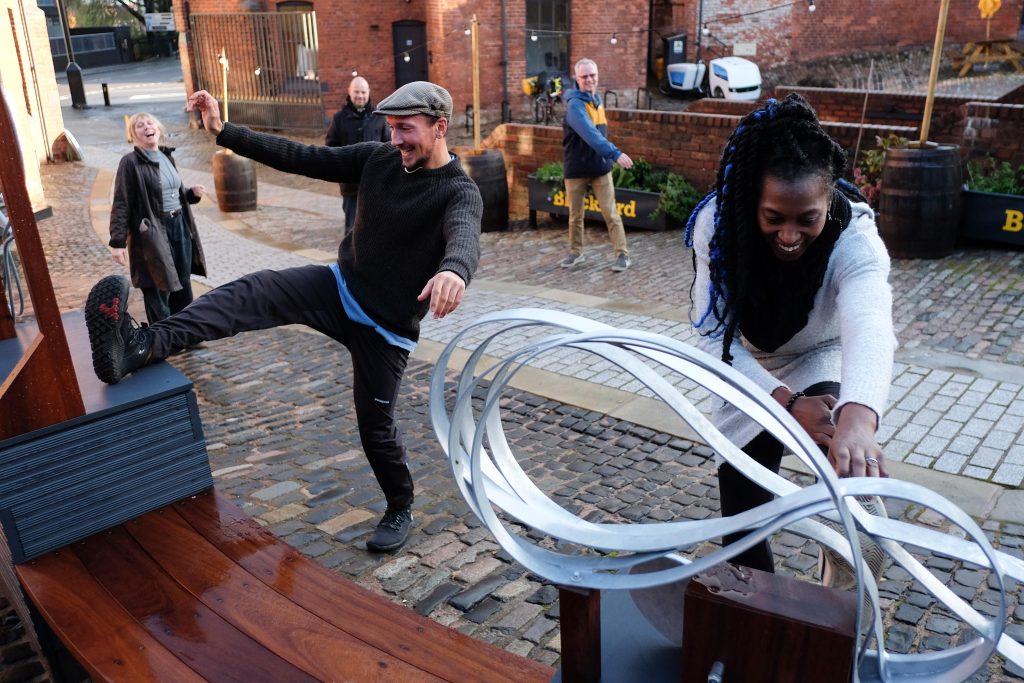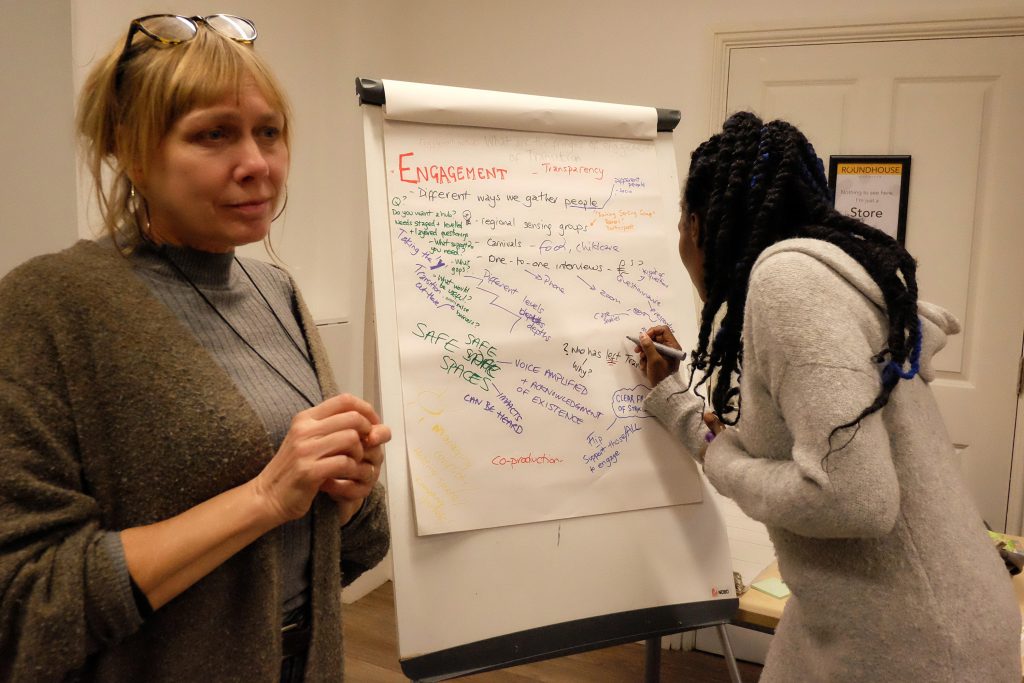Taking care of a vital conversation

12 December 2022
7 minute read
In July 2022, a group of five ‘Caretakers’ came together to explore a framework for the future of the Transition movement in England and Wales.
Since then Phil, Monica, Kate, Declan and Amy have been meeting monthly online, holding deep, rich and challenging conversations, investigating how Transition is organised in other parts of the world and designing a process to involve the wider movement in spring 2023 in building a future structure for England and Wales. Individual Transitioners and groups will have the chance to meet the caretaker group and be part of this vital conversation early next year. In this blog following the group’s first in person meeting, Amy Scaife shares their journey so far as they unearth big questions for all of us, and start to map a path through.
There is a beautiful fractal quality in nature, of repeating patterns within patterns. The capillaries within the leaf follow the same branching pattern of the supporting twigs and branches. Zooming in and out on clouds, coastlines, rivers and roots, veins and capillaries carrying water and blood, repeated arrangements nest again and again within themselves.

The Transition Network has spread like a beautiful mycelium around the planet, creating networks within networks to support the growth of living community organisms that push back against the corrosive and extractive machinery of fossil fuelled, neo-liberal capitalism. Knowledge, inspiration and care exchanged like the sugars and minerals swapped between fungi filaments and the fine hairs of tree roots.
Transition hubs have emerged in countries and regions the world over, each supporting the unique ecosystems of Transition in their location, with training, inspiration and structural support, and often in ways that are specific to their region.
Is a hub like a tree in a forest, connected to the mycelium network of Transition, providing habitat, shelter and nourishment to the diverse array of community organisms that grow and thrive amongst the bark and branches? And if that hub is a tree, should there be a unique tree (or trees) for England and Wales?

These are the knotty (hah!) questions that the Caretaker Group has been pondering these last few months. When we started, it seemed quite simple. What might a hub look like for England and Wales? But then we began to zoom in and out, and the fractal nature of the enquiry became apparent. Are hubs the way that groups talk to each other? How do we talk to each other? How do we talk to each other in community? Who is doing the talking? Who isn’t? Zooming in and out, questions within questions, the edges become blurry, the amorphousness creating a tension in itself. For the first 6 months, all via the medium of Zoom, which added another layer of un-knowing. An enquiry about relationships requires being in right relationship, which can be a challenge through an array of small screens within a screen.
Care was taken to build the Caretaker group. Different life experiences, different skillsets and different experiences of the Transition Movement. Some of us thrive in the moving waters of expansive enquiry; others flourish with doing and action. We were finally able to come together in November in Birmingham, it was a joy to be able to eat together, laugh and develop mutual understanding outside of the confines of screens.
Richard Couldrey from the Transition Together team has been supporting the groups’ work. He reflected how vital it has been to go below the surface: “The group forming period has been difficult because we’re working remotely, so it was wonderful to meet in person in Birmingham in late November. Building relationships is so key to working well together, and hearing each others voices, seeing each others ways of working made a huge difference to deepening our understanding and trust.”

We all bring different skills to the hub, one of mine being storytelling. Initially, on being asked to write a blog about our story so far, our meeting in Birmingham, and where we are going, I thought, ‘Yes, easy! That I can do!’ However, facing the white screen, I struggled. How to turn the billowing, shifting form of our enquiry so far into not just a string of cohesive words, but a story? Panic. Fortunately, I felt a tug of the mycelium network reminding me I am not alone. Questions and answers were again nesting within themselves. Care and inspiration were immediately, abundantly delivered in response to my call for support. Zooming out, zooming in, the answer was always there, even in the name on the tin, The Caretaker Group.
Care is a word that came up again and again in a beautiful, sprawling conversation I had with the wonderful women who make up the Brazil hub. Caring for each other, caring for our communities, the land, our future and past. Relationship building, trust and how these things all take time and are so crucial to how Transition takes shape around the world. I am so excited to speak with and learn from more international hubs, to dig my hands into the rich soil of wisdom and reciprocity that sustains our network. These conversations are also happening closer to home too, with fellow Caretaker Group members interviewing members of hubs across the UK.
Phil Frodsham of the group said their dialogue goes far beyond questions of process and structure: “David Fleming said ‘Do nothing that matters without consulting a conversation’ and this feels like a great opportunity for the Transition movement in England and Wales to have a conversation about where we are and where we would like to go next. And that feels really exciting to me!”
Along with lining up interviews with hub representatives both locally and abroad, we would really like to consult in conversation with you, with any individual involved in the Transition movement. We would like to know: “What does being in the Transition Movement mean to you?”
It’s a big zoomed out question that will be so very useful to guide us as we zoom back down to the pathway towards shaping a hub proposal. It is the beginning question of what we hope to be a longer conversation with you all. We offer it now as a starting point to ease you into the journey with us – either for your own reflection or share your thoughts over on Vive, as we together we prepare the ground for widening this important dialogue.

I will leave you with the words from fellow Caretaker Kate, as to me, they sum up so much of our journey so far, and where we hope to go:
“This work is providing such a rich opportunity – partly through working with such an informed and inspiring group of people, and partly because the work itself is fascinating. I feel that we are going right back to basics in our conversations with people around the country – and in the process of exploring the potential benefits of Transition Hubs, we are exploring the meaning and value of Transition itself – which at a time of such rapid change feels really vital.”
For more background on the caretaker group, read our previous article here.